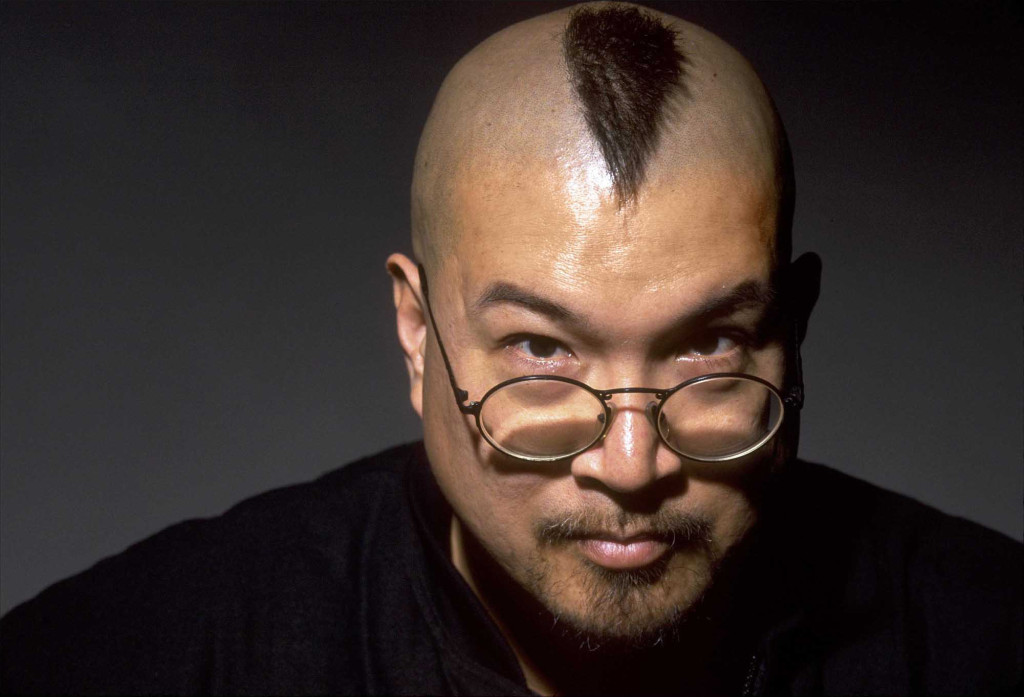
Fred Ho, born Fred Wei-Han Houn, was a revolutionary musician and composer best known for fusing African American and Asian American musical and cultural elements to create revolutionary music as social activism. A self-taught musician who played the baritone saxophone, Ho was inspired by the Black Arts Movement and the Black Power Movement of the 1960’s to create the Afro Asian Music Ensemble, a cohort of Asian American musicians exploring new hybrid forms of jazz (a term that he himself rejected as a byproduct of White appropriation of Black music). Throughout his career, Ho composed several modern operas that infused political thought into music, including his first work “A Chinaman’s Chance”, “Journey to the West”, “Journey Beyond the West: The New Adventures of Monkey”, and “Warrior Sisters: The New Adventures of African and Asian Womyn Warriors”.
As a social activist, Ho dedicated himself to activism at the age of 16, and identified as a radical Asian American activist, feminist and “revolutionary yellow nationalist”. He briefly joined the Black Panther Movement, the Nation of Islam, and I Wor Kuen, but is also well-known for his founding role in several Asian American organizations that still exist today, including the East Coast Asian American Student Union (ECAASU) and the Asian American Arts Alliance.
Ho has also authored several books, including his co-editing of Legacy to Liberation: Politics and Culture of Revolutionary Asian Pacific America, a book that is among today’s essential readings on the radical Asian American Movement of the 1960’s- 1970’s. In it, Ho offers this advice to contemporary revolutionary activists in the direction that Asian America must take:
We need a resurgence of revolutionary theory and Marxist ideology. Today’s activist really needs to study the history of struggle and revolutionary experiences both of their particular movement but also international revolutionary experiences. We need to promote revolutionary consciousness and understand that ideology is KEY to having a framework to advancing strategy and vision and to answer the complex questions.
We need to build independent militant, not non-profit, organizations and resources. A revolutionary and radical media needs to be built and sustained without state or corporate funding. We’ve done it before. In fact, technology has allowed us to publish, record, video and communicate even easier. What we lack is the political prioritization and organization concentrated in building these resources.
Cultural work and the arts. We need to be constantly creative in all the many visual, spoken word, musical and theatrical expressions and forms to promote revolutionary consciousness.
Finally, what we’ve begun tonight: an intergenerational and cross-Left dialogue. To share history, lessons, to debate ideas, to lay out differences, to have debate and struggle in a civil, respectful and dignified way with different generations and across the ideological spectrum.
In 2006, Ho was diagnosed with colorectal cancer. He battled the disease for 8 years, keeping a blog to document his journey. He died Saturday April 12 in his home in Greenpoint, Brooklyn.
Ho was a well-known figure in the Asian American political community: a mentor, teacher, radical warrior and living legend who dedicated his life to the empowerment of Asian America. A contemporary of many of our historical civil rights leaders, Ho was best-known for his dedication to forging his own path; inarguably, he and his activism had an indelible impact on the modern Asian American community.
Rest in power, Fred Ho.
